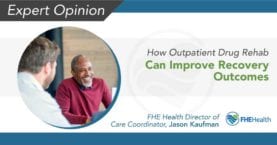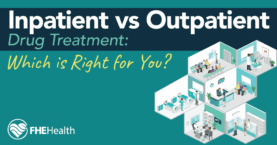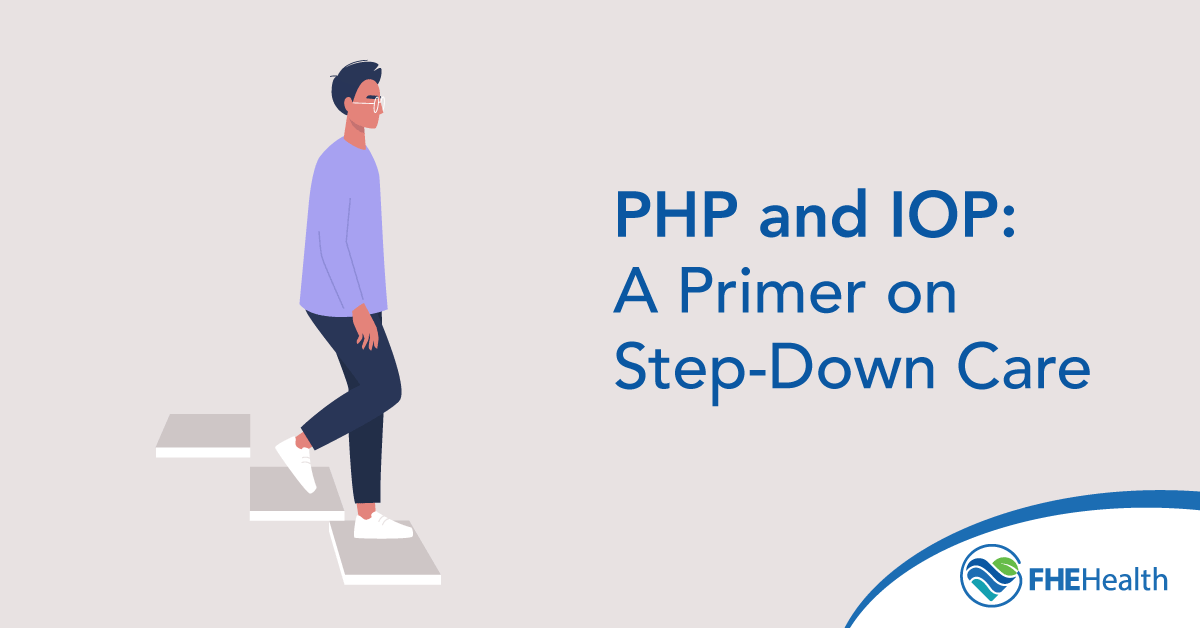
|
|
What does IOP stand for? What is a PHP in health care? Here’s everything you need to know about your after-rehab outpatient options.
Outpatient programs are generally a step down from inpatient treatment, designed to ease a client’s assimilation into day-to-day life. People new to the recovery world may find the acronyms describing these programs confusing. What does PHP stand for in rehab? And what is the difference between a PHP and an IOP? This article explains what a partial hospitalization program (PHP) in health care is and how it compares to an intensive outpatient program (IOP).
PHP vs. IOP
Both program types are provided on an outpatient basis, meaning clients have the flexibility to live at home. However, PHP offers participants a full-time schedule, with various therapeutic sessions and activities lasting up to 7 hours daily, 5 days a week. IOP is a slight step down from PHP, with a more flexible attendance schedule to account for other commitments such as work or school.
Outpatient programming is an integral part of the continuum of care for substance use disorder recovery. The type of program suited to each patient depends on their circumstances. While both are structured forms of outpatient care, the time commitment requirements vary. Research suggests that completing both PHP and IOP increases the likelihood of long-term sobriety. Around 64% of participants in one study were still abstinent 6 months after graduating from an IOP.
What Is a PHP in Health Care?
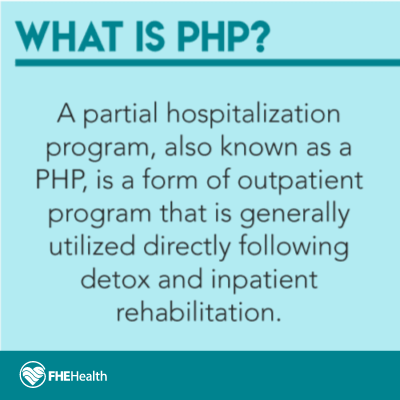 PHP usually follows detox and inpatient rehabilitation. Like residential treatment, clients benefit from a full-time structure when receiving PHP recovery. Meetings and activities span most of the day, often for 5 to 7 hours, 5 days a week, for around 30 hours weekly.
PHP usually follows detox and inpatient rehabilitation. Like residential treatment, clients benefit from a full-time structure when receiving PHP recovery. Meetings and activities span most of the day, often for 5 to 7 hours, 5 days a week, for around 30 hours weekly.
The content of the PHP programming will vary from one organization to another. It may include therapy, group, life skills and medication management sessions. The program covers accountability, anger management, emotions processing and coping mechanisms to help clients better adjust to life outside a rehabilitation facility.
The difference between PHP and inpatient rehabilitation lies in residence. While inpatient participants live in a treatment center, members of a PHP can live at home or in sober living. This provides a layer of autonomy for those who’ve completed an inpatient program but aren’t ready to return to jobs, living arrangements or lifestyle choices that may have caused the onset of addiction.
Benefits of PHP
A PHP effectively combines a residential program with less demanding outpatient treatment options. While individuals involved no longer have to live in a rehabilitation center, they still commit extensive time to recovery. Some freedoms are restored, but most of the participants’ free time revolves around building a solid foundation for ongoing sobriety and relapse prevention. The advantages of a PHP include:
- Continued access. Participants benefit from professional addiction resources.
- Ongoing therapy. Participants continue working through the underlying issues that contributed to their substance abuse problem.
- General life skills lessons. Participants learn how to implement healthy habits in their day-to-day lives.
- Maintaining accountability. Participants remain in a group setting and can develop bonds with others in the same situation.
What Is an Intensive Outpatient Program?
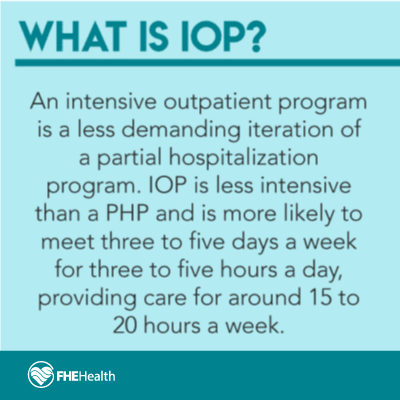 As a step down from PHP, IOP provides a lower level of care for individuals transitioning from more intensive treatment. Despite the name implying otherwise, an intensive outpatient program is a less demanding iteration of a PHP. Participants typically meet for around 15 to 20 hours a week.
As a step down from PHP, IOP provides a lower level of care for individuals transitioning from more intensive treatment. Despite the name implying otherwise, an intensive outpatient program is a less demanding iteration of a PHP. Participants typically meet for around 15 to 20 hours a week.
At this stage, participants are expected to be more comfortable with sobriety and less likely to fall back into old habits. IOP scheduling is more flexible and can work around life events. Some programs meet early in the day or late in the evening to allow time for work, school or family activities.
Benefits of IOP
IOPs can significantly benefit recovery. They allow participants to return to earning an income or spending time with loved ones, which can positively affect their mental health. Due to its flexibility, an IOP is the first opportunity to engage in parts of pre-rehabilitation life. Participants who’ve reached this stage are seen as responsible enough to move forward safely.
Advantages of IOPs include:
- Maintaining access. Participants attend structured recovery programming in a professional environment.
- Increased flexibility. Participants receive support as they ease back into school or work.
- Ongoing support. Participants attend group sessions and can connect with other members.
- Continued counseling. Participants receive individual therapy, helping them cope through the transition.
Sober Living and Outpatient Care
After detox and inpatient rehabilitation, many recovering users are eager to move back home and settle into everyday life again. However, treatment centers, including FHE, encourage those in outpatient programs to participate in sober living houses or residential communities. This allows a transitory place to call home while attending outpatient care to help participants avoid temptation and remain focused on recovery.
Rules in sober living communities may include a curfew, chore participation and, of course, abstinence from substances. Failure to follow the rules may result in the participant losing their place in the residential community. However, the strict rules aren’t meant to punish but to incentivize individuals to make better decisions outside the confines of an inpatient facility.
Which Program Is Right for You?
At FHE, outpatient care is encouraged as part of a continuum, not several stand-alone pieces. After completing rehabilitation in an inpatient facility, a partial hospitalization program is the best choice. This kind of program provides a continuation of care and only moderate interruption to a routine participants are already familiar with.
After participating in a PHP, you may be ready for an IOP. However, rushing through a treatment plan or treating rehabilitation as a chore to finish may compromise your recovery and increase the likelihood of relapse.
At FHE Health, we believe in personalized support for every client. From initial admission into our detox process to graduation to alumni status, we offer an evidence-based approach specially tailored for each participant. Contact FHE today to learn how our PHP and IOP options can support your recovery.
